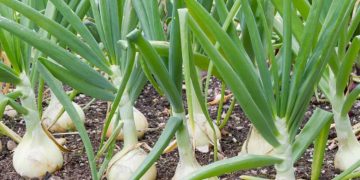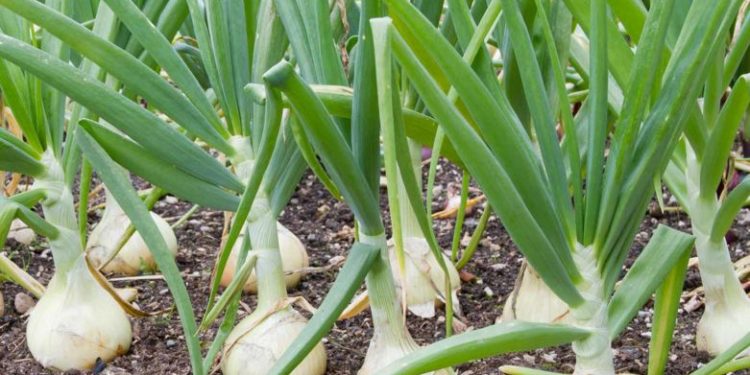In this article, we explore the critical role of boron in onion cultivation and uncover effective strategies to optimize its usage for achieving optimal yields and high-quality onions. Drawing on the latest data and scientific research, we delve into the importance of boron as an essential micronutrient, discuss its impact on onion development, and shed light on the consequences of boron deficiency or excess. Discover how optimizing boron management can revolutionize onion farming practices and maximize crop productivity.
Boron is a micronutrient that plays a vital role in various physiological processes of onion plants, including cell wall synthesis, pollen germination, and carbohydrate metabolism. Adequate boron availability is crucial for normal onion growth and development. However, both boron deficiency and excess can have detrimental effects on crop productivity and quality.
Data from studies conducted by the University of California Cooperative Extension shows that boron deficiency is a common issue in onion production, especially in sandy soils. Symptoms of boron deficiency include twisted and thickened leaves, hollow stems, and abnormal bulb development. On the other hand, excessive boron levels can lead to leaf burning, reduced growth, and even plant death. Therefore, it is vital to optimize boron management for optimal onion production.
To optimize boron availability for onion plants, several strategies can be implemented. Soil testing should be conducted to determine the boron levels accurately. Based on the results, boron fertilizers can be applied at the recommended rates and timing. It is important to note that boron application should be done with caution, as excessive boron can be toxic to onions. Additionally, maintaining proper soil pH, improving organic matter content, and practicing balanced nutrient management contribute to optimizing boron uptake by onion plants.
Optimizing boron management has shown significant benefits in onion farming. Research published in the Journal of Plant Nutrition demonstrated that proper boron application increased bulb size, improved yield, and enhanced the storage quality of onions. These findings highlight the potential of optimizing boron as a means to maximize onion productivity and market value.
Consequences of boron deficiency or excess extend beyond reduced yields. Boron plays a crucial role in root development, flowering, and seed production in onions. Adequate boron levels promote nutrient uptake, water regulation, and overall plant health. By optimizing boron management, farmers can ensure optimal onion growth, quality, and marketability.
In conclusion, understanding the role of boron in onion cultivation and optimizing its usage is essential for achieving high yields and superior crop quality. By monitoring and managing boron levels effectively, farmers can overcome deficiencies or excesses, ensuring robust onion growth and maximizing market value. Embracing these strategies will not only benefit individual farmers but also contribute to the overall sustainability and profitability of onion farming.
#BoronOptimization #OnionProduction #Micronutrients #YieldMaximization #CropQuality #SoilManagement #AgriculturalProductivity































